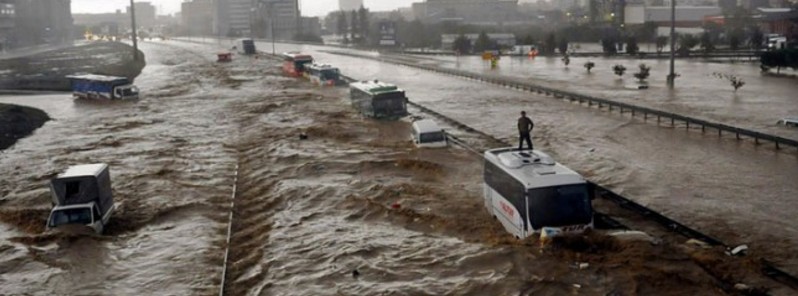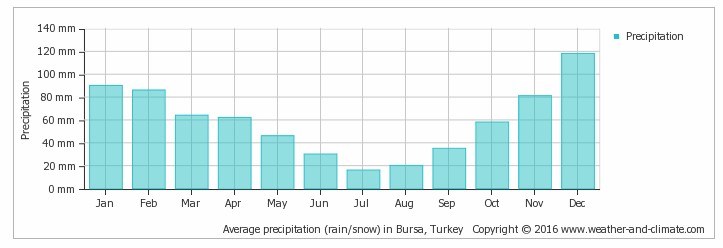Extreme flash flooding hits Istanbul after heaviest rain since 1985, Turkey

Turkey's most populated city, Istanbul suffered extreme flash flooding on Tuesday, July 18, 2017, after rainstorm dumped 4 months worth of rain in just 12 hours. It was the most severe rainfall the city has seen in the past 32 years, but only the first of several waves of rainstorms expected. Meteorologists say the rains will last until Wednesday evening.
Light showers reached Istanbul late Monday, July 17, and turned into extremely heavy rains at 08:30 local time (05:30 UTC), Tuesday when huge black clouds covered the city, effectively ending the summer heat.
According to Doğan News Agency, the city was hit by most severe rainfall in the past 32 years, with 128 mm (5 inches) of rain before the first storm was over. This is more than four times the average for the month of July (32.5 mm / 1.3 inches), its driest month, and more than the region usually records during entire December, its wettest month.
According to a statement issued by Istanbul Metropolitan Municipality, 65 mm (2.5 inches) of rain fell on the city center within 1 hour, accompanied by winds of up to 80 km/h (50 mph). In total, the city center and western districts saw 110 mm (4.3 inches) of rain before 14:00 local time when the second wave of heavy rain was expected.
To put these amounts into perspective, take a look at this region's monthly precipitation averages:

Transport Minister Ahmet Arslan described the heavy rainfall as a "disaster." He said it took just 90 minutes of heavy rain to create the extraordinary situation, the Daily Sabah reported.
Veysel Eroğlu, Turkish Forestry and Water Affairs Minister, said the rainfall, which had the capacity to occur throughout a year, was received in 12 hours.
"Yesterday, we saw that this rainfall would come. We informed our president and prime minister about this. The rains will last until Wednesday, July 19 evening," he said.
The rain inundated many buildings and offices, roads, underpasses, and subway lines, causing havoc across the city, the Associated Press reported.
One of the worst-hit areas was the district of Silivri where emergency crews used boats to rescue people stranded in homes. The Eurasia Tunnel, connecting Istanbul's Asian and European sides under the Bosporus strait, was temporarily closed to traffic.
A number of minor traffic accidents were reported but there were no casualties, the Disaster and Emergency Management Authority President Mehmet Halis Bilden said.
The Istanbul Governor’s Office urged residents to leave their vehicles at home where possible, to prevent further road problems.
Istanbul inundated after worst rainstorm since 1985 – July 18, 2017
The flash floods also hit northwestern provinces of Çanakkale, Tekirdağ, and Balıkesir.
Such destructive storms were last seen in Istanbul on September 9, 2009. Although the city saw less rainfall than today, the floods they caused killed 31 people, mostly motorists and passengers trapped in vehicles.
Featured image: Extreme rainfall inundates Istanbul, Turkey on July 18, 2017

Commenting rules and guidelines
We value the thoughts and opinions of our readers and welcome healthy discussions on our website. In order to maintain a respectful and positive community, we ask that all commenters follow these rules.